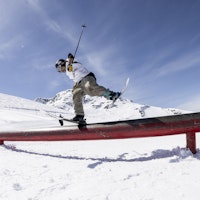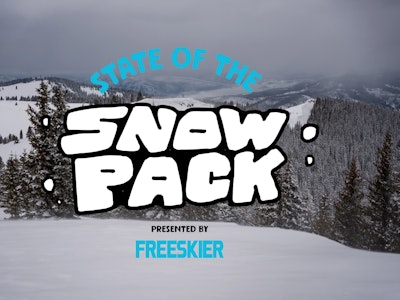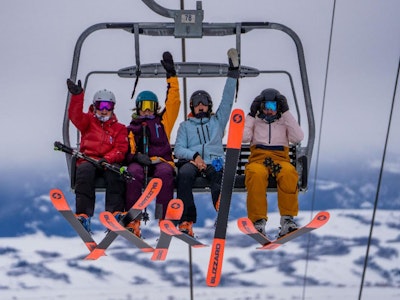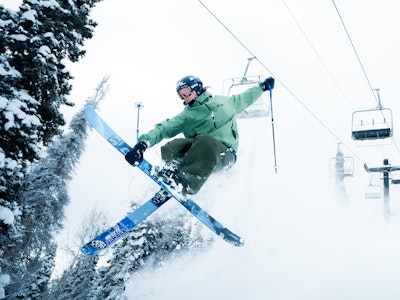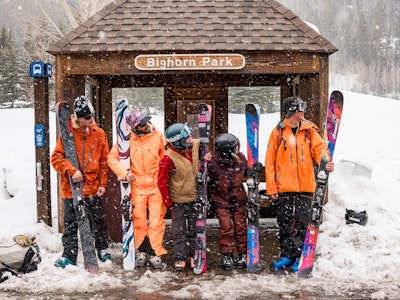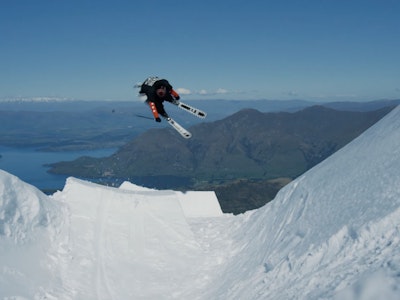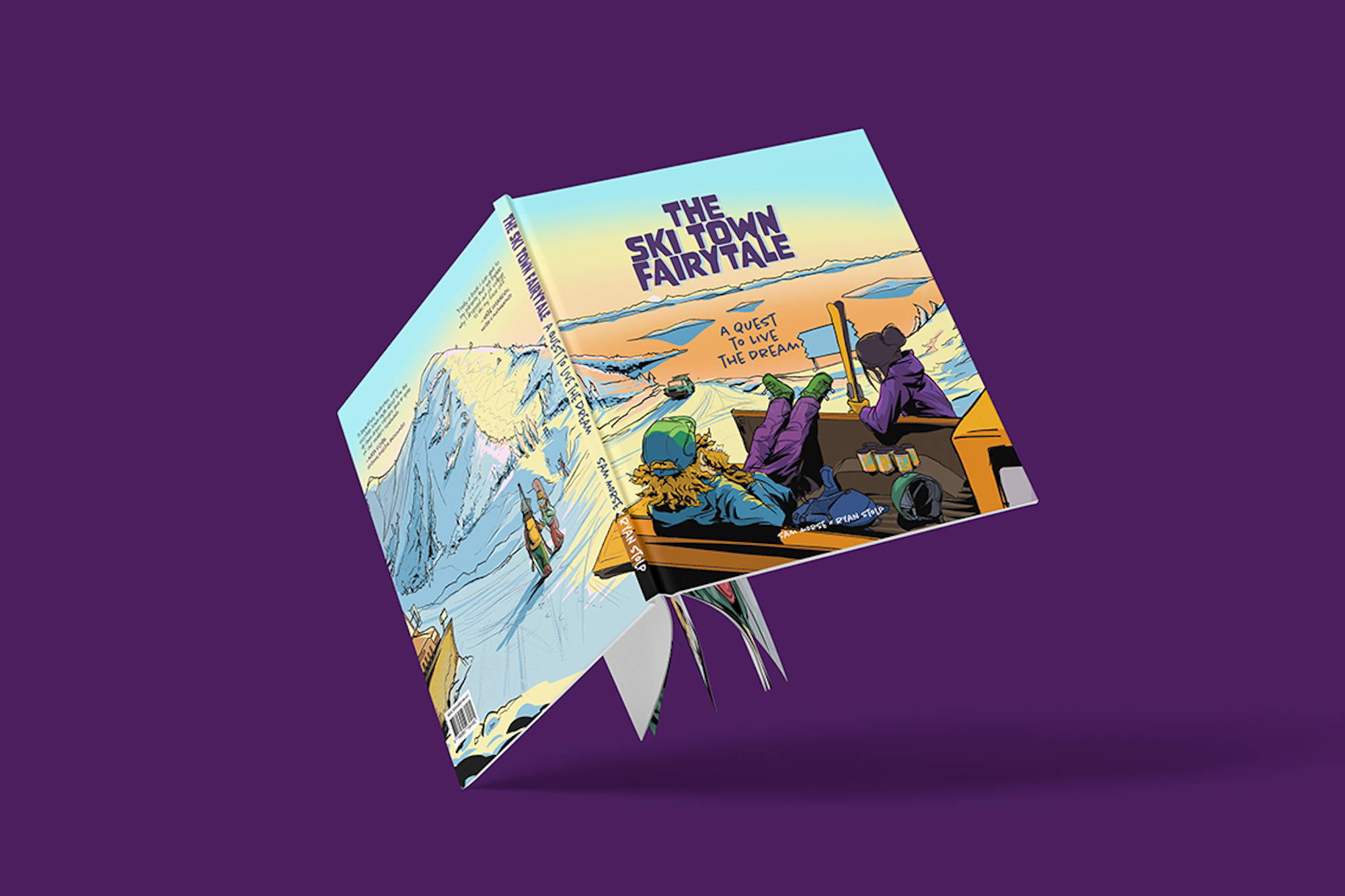How many of us dream of quitting our jobs, packing up the car, and running away to the mountains to chase winter? I can still remember the day I loaded up my Honda Pilot and moved to the Tetons, one-track mind focused on skiing, unconcerned with boring real-world problems like health insurance, a 401k, or a bedroom with real walls.
Chasing powder is a dream that many skiers can relate to. It’s woven into the very fiber of the sport, dating back to Warren Miller’s dirtbag days in Sun Valley in the 40s. We champion the ski bum, who holds the kind of social currency money can’t buy, and we congratulate those who’ve passed up careers and family obligations in pursuit of the addictive (yet fleeting) weightlessness of powder turns. But at what point do we start to look a little deeper, and question what those sacrifices really mean?
The Ski Town Fairytale, a new graphic novel written by Sam Morse and illustrated by Ryan Stolp, shines a spotlight on the realities of ski bumming as it is today (hint: unless you have a trust fund, it’s not as easy as Instagram makes it look).
The graphic novel follows Sophie, an aspiring ski bum, as she ditches her corporate job and heads for the hills of Jackson Hole. She’s in pursuit of the “The Dream,” a carefree, adventure-rich life she’s derived from social media, as she tries to carve out a life of her own in the mountains. Yes, it’s a graphic novel about skiing, and yes, you can even read it to kids.
As a character, Sophie is relatable. Anyone who’s spent an extended amount of time in a ski town will recognize the issues she encounters: housing insecurities, precarious employment, obnoxious roommates, hour-long lift lines, social media addiction. These are the elements that millennial ski bums are up against as they seek out the carefree life plastered all over Instagram. “So much ski and outdoor media is aspirational in nature,” says Morse. “Everything you see on Instagram is the peak, superlative experience. But living day to day can be challenging. Most of the time you’re not actually skiing powder. We wanted to create a story in a fairytale format that was candidly honest about what it’s like to be a ski bum.”
Stolp and Morse agree that the age of social media and remote work has changed the landscape of not only what it looks like to be a ski bum, but the question of whether ski town dirtbagging as we know it is even possible any more. And while it doesn’t exactly follow the stoke-filled shreddy narrative of typical ski media, it brings a refreshing dose of humor to some of the harsh realities the modern day ski bum faces.
Morse now lives in Salt Lake City, but spent his 20s as a ski bum in Jackson Hole, prioritizing powder turns over job security, working seasonal shifts and raft guiding in the summer. “It takes a deep psychological toll to move every few months and try to work three jobs. I’m a privileged, hetero, cisgender white man, and it was even hard for me to make it work as a ski bum (although still easier than it is for many). The only people who can really make it work are those who don’t need to work in the first place,” he says, adding that in many ways, the tumultuous life in a mountain town that everyone seemed to put on a pedestal wasn’t all that fulfilling. “I’d wake up each fall and feel depressed about not actually moving forward in my life.”
Stolp moved to Jackson six years ago and has been consistently fascinated by the rotating cast of characters who go to great lengths to cling to life in places like the Tetons. He is the author of the tri-weekly Lift Lines Comics, a series of often darkly satirical comics that poke fun at mountain town culture. As social media pushes the narrative and idealistic life of living in places like Jackson, he’s watched the disparity between the wealthy class and workforce grow, and the fabric of the community come undone as the middle class gets pushed out. “Van life has allowed people to live in a temporary dream at the cost of embedding in place and a community. The ski town dream can’t be one place, it has to be a mindset and has to be flexible,” he says, adding that “we can’t just put places like Jackson Hole on a pedestal. It’s not sustainable. The secret’s out and we’re bad at self regulating.”
Humor is an outlet for Stolp to process the outrageous dynamics at play in mountain towns, a lens that he and Morse share, and it leads to an artful blend of wit and social commentary.
While the premise of ‘The Ski Town Fairytale’ may seem dark at times, Stolp and Morse aren’t trying to talk anyone out of pursuing happiness in the mountains. Yes, they poke fun at the fleetingness of the “Dream,” but it’s also refreshing in a sense, a much-need dose of humor for those of us trying to hang on while many of us watch our mountain towns crumble under the influx of digital nomads and big city refugees. So what’s the moral of the story? You’ll have to read it to find out, but I can guarantee it will make you laugh, think, roll your eyes, and most importantly: toss your skis in the car and head to the mountains. Because all is said and done, the best cure for skiing is more skiing.
‘The Ski Town Fairytale’ is available for purchase on Amazon or Ryan Stolp’s personal website.

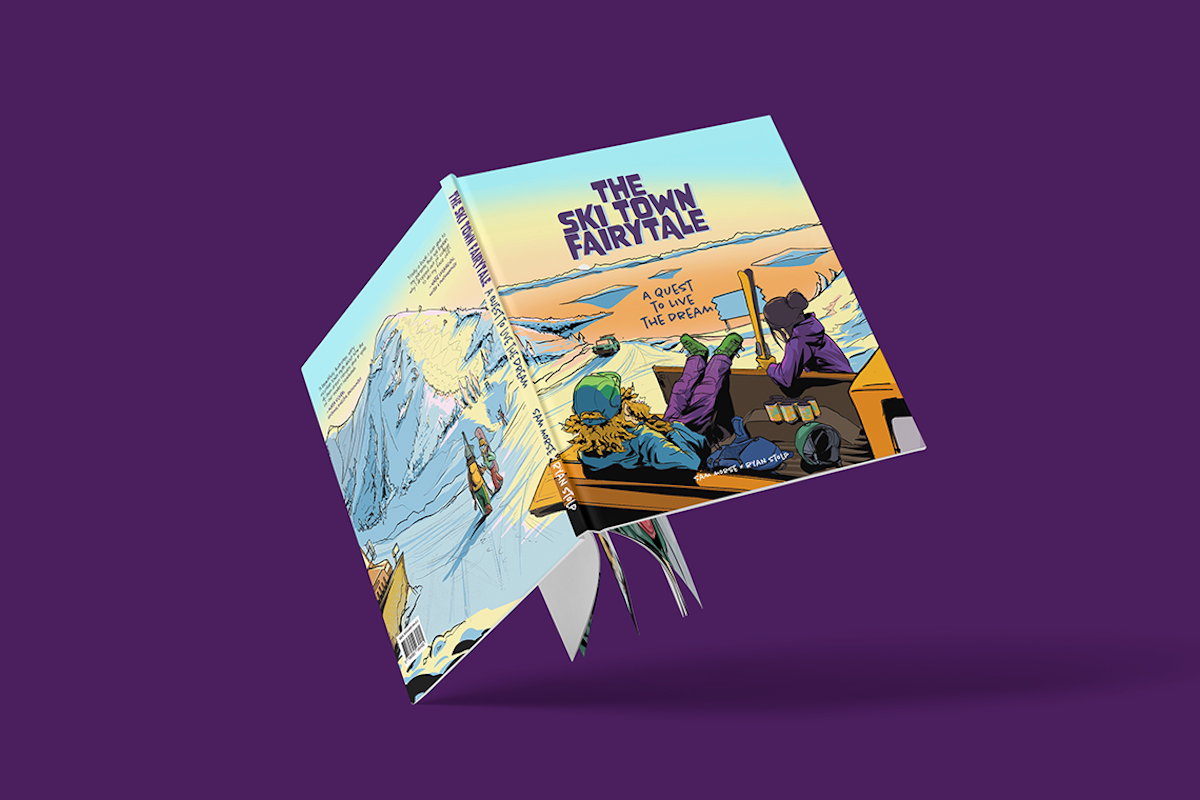


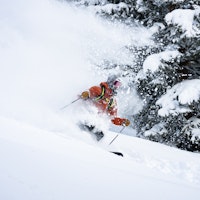
![[FIRST LOOK] New 2027 Skis and Outerwear From Rossignol](https://www.datocms-assets.com/163516/1771280782-2026_fs-firstlook-deck.png?w=200&h=200&fit=crop)
